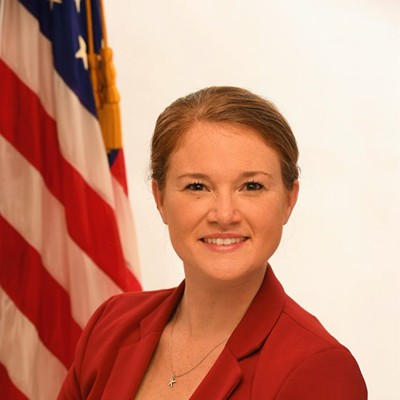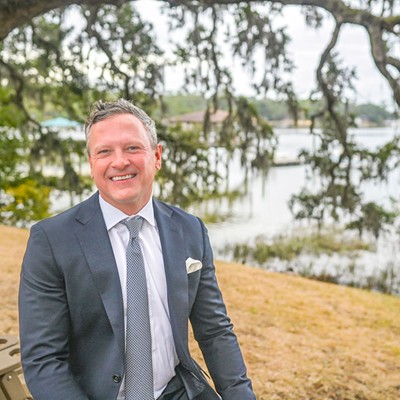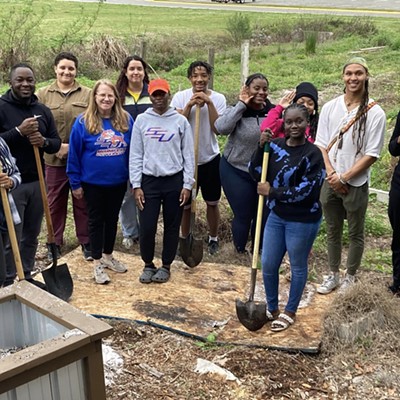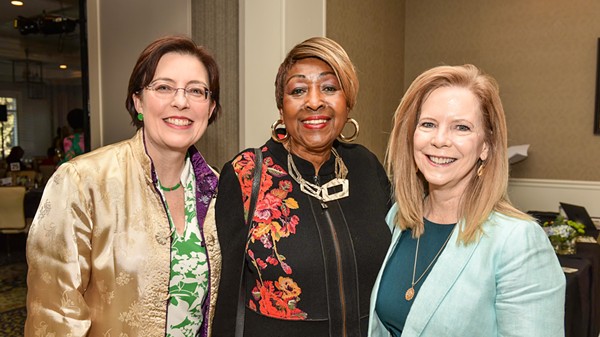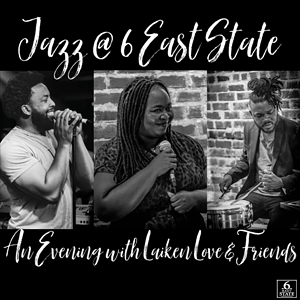As part of the 150th anniversary events marking the surrender of Ft. Pulaski, local filmmaker Michael Jordan will premiere his documentary Savannah During the Civil War this week at the historic fortress.
The 90–minute film uses local actors and historians to bring to life the activity in Savannah, where, in Jordan’s words, “A hell of a lot more happened than just not getting burned by Sherman.”
Jordan has already made DVDs about Savannah homes and local graveyards, and his most recent release is the popular guide video Savannah Square by Square. After several years of wanting to do a Civil War doc, he decided the anniversary of Pulaski’s fall was the perfect time for a whole overview of the local role in the war.
But rather than use the typical Ken Burns–style of slowly panning over single images, Jordan decided to really take the plunge and script the film for actors portraying historical figures.
“I decided there were too many people with too many fascinating stories that would be underserved if we just had a bunch of historians talking,” Jordan says. “In all I used about 30 actors and at least a dozen historians.”
Some of the local figures playing roles include Visit Savannah Director Joe Marinelli (Col. Edward C. Anderson), Savannah Bicycle Campaign Director Frank McIntosh (Gen. Hardee), singer Kim Polote (Susie King Taylor), local filmmaker David Harland Rousseau (Col. Charles Jones), and this reporter as Sanford Branch, part of a fighting family of Confederate soldiers from Savannah.
Also involved in the film are numerous interpreters from the Owens–Thomas House and the Davenport House, as well as local historians providing perspective.
The video begins with “the heady days of secession when everyone was fired up at the idea of being part of this new country,” Jordan says.
But with the first battle of the war, at Bull Run in Virginia, things immediately became somber here.
“At Bull Run, six Sunday school classmates at Independent Presbyterian Church all died. There was a mass funeral. It was like a city–wide punch in the gut,” he says (one of the aforementioned Branch brothers died in that battle).
After that, things got a little harder to define.
“The Confederates are actually winning the war all the way up until Gettysburg, but down here almost as soon as the war begins a Northern invasion force takes Hilton Head. So Hilton Head becomes a huge Union navy base and the Union blockade of the South starts,” Jordan explains.
“People in Savannah are terrified that the Yankees are coming any day. That’s also when life, frankly, starts getting sucky in Savannah with all the shortages and economic problems,” he says. “Despite that, Savannah was actually one of the South’s most productive naval facilities. Many of the Confederate ironclads were constructed here.”
Kim Polote’s turn as Susie King Taylor has particular historic resonance, Jordan says, because “Taylor is the only African American female memoirist to come out of the war.”
Taylor defied the law to teach herself how to read and write in Savannah. “When the war begins, she flees to St. Simons Island and becomes a laundress to the first unit of black troops,” Jordan says.
Perhaps the most unusual, and underreported, thing that happened took place right before war’s end.
“About five months before the war ended, Savannah actually voted to rejoin the union. They were like, we’re tired of this crap, it’s time to start making money again!” Jordan says.
“City leaders at the time, like Mayor Richard Arnold, were very pragmatic. But newspapers in Augusta and other cities around Georgia just pounded us to pieces for that, calling Savannahians traitors to the cause.”
After the war, Jordan says, veterans of both sides began the process of bonding and healing together as countrymen with a shared heritage and shared sacrifice.
“The veterans all begin to meet together and sort of celebrate the past in a nostalgic way. They more or less are able to move on,” he says.
“But the Confederate women never let it go. They lost husbands and sons. They’re not about to forgive.”
Savannah in the Civil War Premiere
What: Michael Jordan’s new documentary will screen outdoors on 26–foot screen.
When: Thurs. April 12, 7:30 p.m.
Where: Ft. Pulaski, Hwy 80. Bring insect repellent and lawn chairs if you want.
Cost: $5 adult admission to fort, receipt good for visitation 7 days after purchase
Info: 912/786–5787







